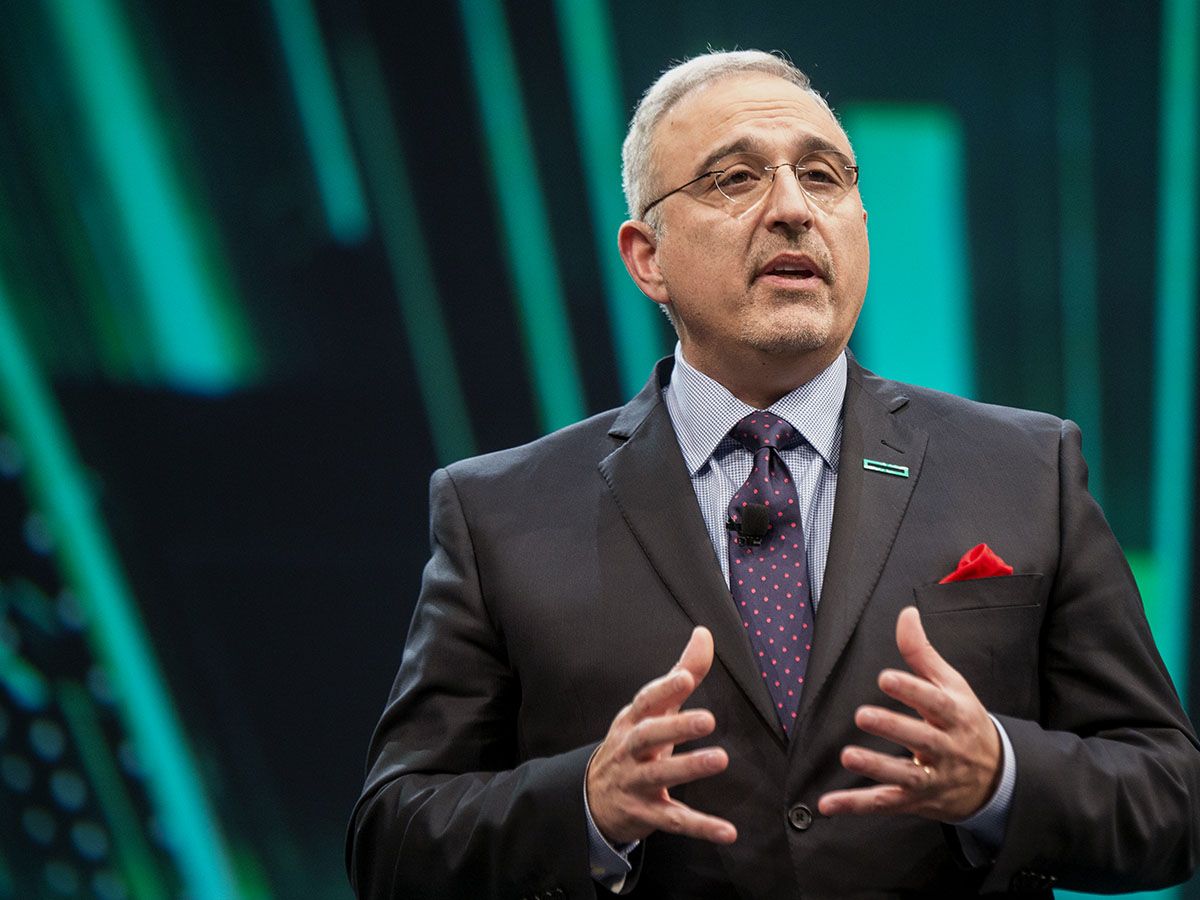Hewlett Packard Enterprise [HPE] revealed it will be raising its full-year guidance, prompting the company's share price to increase by 3.4%. HPE’s full-year guidance now sits between $1.72 and $1.76 in EPS (excluding certain items), as opposed to analysts’ predictions of $1.68 per share for the full fiscal year.
The full-year guidance amendment was prompted by a better than expected non-GAAP of $0.45, an increase of 7% on the same period a year prior, and above a previously provided outlook of $0.40 to $0.44 per share, HPE outlined in a statement.
Despite beating on the bottom line, its top line has suffered as the company’s revenue declined for the third consecutive quarter year-over-year, this time by 7% at $7.22bn against the $7.76bn expected by analysts.
Up to 31 July of this year, total costs and expenses were up by 0.27%, coming in at $7.29bn. Net earnings were down 106% year-on-year with a loss of $27m and gross margins were up 33.9% (+340bps from the prior-year period).
According to Zacks Equity Research, HPE shares have “lost around 2% since the beginning of the year versus the S&P 500’s gain of 14.8%” but, over the last four quarters, “the company has surpassed consensus EPS estimates four times”.
Why can’t Hewlett Packard Enterprise make a profit?
It was a mixed bag of results for HPE, but its inability to turn a profit could be a concern for investors.
| Market cap | $18.03bn |
| PE ratio (TTM) | 7.73 |
| EPS (TTM) | -0.14 |
| Operating Margin (TTM) | 8.96% |
HPE share price vitals, Yahoo finance, 29 August 2019
Its Hybrid IT business segment has proven to be the main revenue driver for HPE; which includes the likes of networking equipment for data centres and storage. Hybrid IT generated $5.55bn in Q3 of the fiscal year, which is 9% down on an annualised basis, as well as falling below the FactSet prediction of $5.7bn.
Compute revenue (more than half of Hybrid IT revenue), including sales of servers, fell by 10% on a yearly basis in the same quarter.
The company appears to be going through growing pains, as CEO Antonio Neri (as pictured above) looks to deliver on his promise for the hardware maker to move towards cloud-based software and pay-per-use models by 2022. So far, HPE has formed a partnership with Google [GOOG] to adopt a hybrid model and has also announced a $1 4bn acquisition of Cray [CRAY], while cutting company spending to improve profits. It will be interesting to see how HPE revenue fairs in the long-term.
-10%
Compute revenue YoY decline
According to CNBC, HPE’s CFO Tarek Robbiati said: “Fiscal year 2019 was not a year where we wanted to dial up the growth. Fiscal year 2019 is a year where we had to deliver on the EPS commitment [to] drive free cash flow. These are the two most important metrics [to help] prepare ourselves to dial up the growth in the subsequent quarters.
“While elongated sales cycles persist and remain more pronounced for large enterprise deals, they are not materially worse than in June. HPE’s broad portfolio and global footprint makes us well diversified to handle choppy markets. We have also been able to successfully navigate all of the recent tariff increases on China exports that have been factored into our outlook.”
Competitor Dell to report earnings this week
Dell Technologies [DELL] is set to report its earnings for the fiscal quarter ending 31 July 2019 on 29 August. Zacks Investment Research has forecasted $1.45 EPS for the quarter; Dell sat at $1.81 for the same quarter the previous year – a predicted decline of 19.89%.
Although Dell is seeing a year-on-year quarterly revenue increase of 2.6% compared to HPE’s fall of 7%, HPE is seeing better returns on assets and equity (TTM) at 2.61 and 6.88 respectively. Dell has clocked -1.13 for return on assets and -68.69 for equities (both TTM). When compared to others in the industry, HPE’s revenue struggles are perhaps better understood.
19.89%
Dell's YoY EPS decline
Hardware makers have been struggling to adapt and diversify as consumers shift from hardware to software. Analysts expect hardware sales to continue to falter in the face of the US-China trade war and weakening global economies.
Neri said: “In Q3, we improved both gross and operating margins, delivered strong non-GAAP earnings, and generated a record level of year-to-date free cash flow. We also invested in important innovation for our customers and announced strategic acquisitions, including Cray, which we now expect to close by the end of fiscal year 2019, earlier than originally planned.
“Our strong operational performance reflects continued disciplined execution as we deliberately shift and enhance our portfolio to provide customers with higher value, software-defined offerings, delivered as a service.
“I remain confident in our ability to drive profitable growth as we execute our strategy.”
Continue reading for FREE
- Includes free newsletter updates, unsubscribe anytime. Privacy policy





